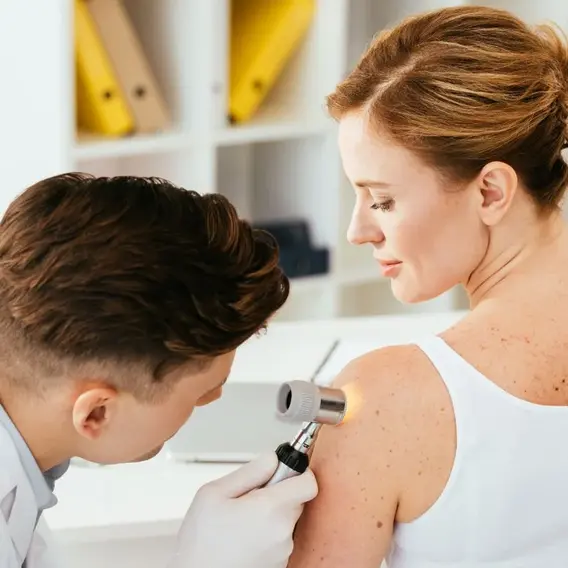Early detection examinations are medical tests that aim to detect cancer or cancer precursors at an early stage, i.e. usually before symptoms appear. These include skin cancer screening, but also imaging procedures such as breast X-rays (mammography), visual endoscopic procedures such as colonoscopy and laboratory tests such as blood tests or tissue samples. Whether these examinations are useful depends on age, gender, family history, certain previous diseases and other factors that influence the affect the risk of cancer.
Which early detection examinations are available?
In Germany, there is a statutory cancer early detection program that offers free examinations for the early detection of breast, bowel, cervical, skin and prostate cancer from a certain age. Most of these tests offer the chance to detect cancer at a preliminary stage or at least at an early stage. This means that treatment can often be more gentle. Cancers detected early also usually have a better chance of being cured. Participation is voluntary.
Breast cancer
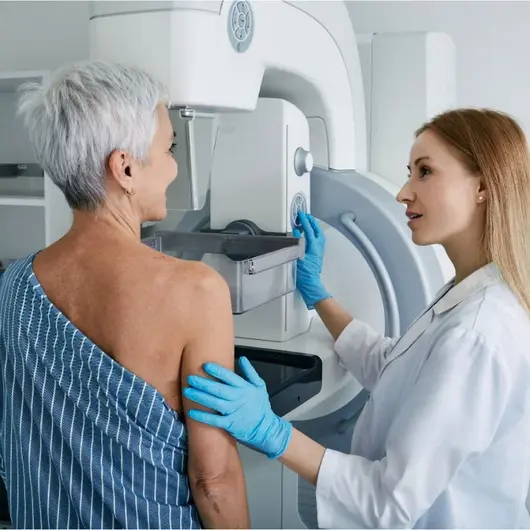
Women aged 30 and over can take part in the statutory breast cancer early detection program once a year with their gynecologist. This includes a palpation examination in which the breast, surrounding lymph nodes and armpits are palpated. Patients also receive instructions on how to palpate their breasts themselves and information on what changes they should look out for.
Between the ages of 50 and 75, patients are also entitled to a mammogram every two years. This involves examining the breast with low-dose X-rays. Every two years, women aged between 50 and 69 receive an invitation letter for mammography screening as well as a detailed information brochure on the benefits and risks of the examination.
Colorectal cancer
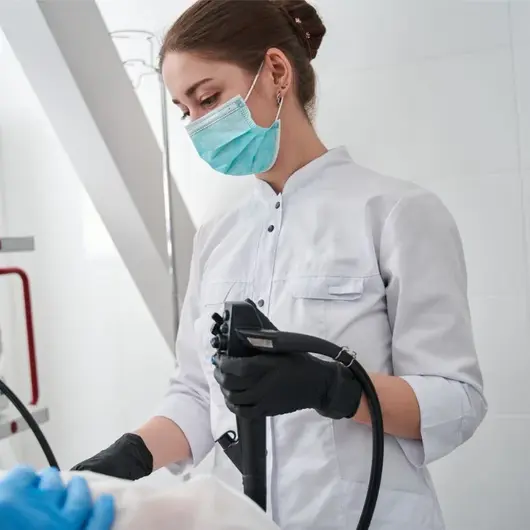
Between the ages of 50 and 54, women and men are entitled to an annual test to detect hidden blood in the stool; after that, the test is offered every two years. In addition, anyone aged 50 or over can have a colonoscopy, which can be repeated after ten years if the results are normal. Colonoscopy is considered the most reliable method for the early detection of bowel cancer.
Another advantage: colonoscopy can detect and directly remove cancer precursors such as bowel polyps.
Since 2019, all men and women aged 50 and over with statutory health insurance have received an invitation to a colorectal cancer screening. This takes place every five years and also contains an information brochure about the procedure and the benefits and risks of the examinations.
Cervical cancer
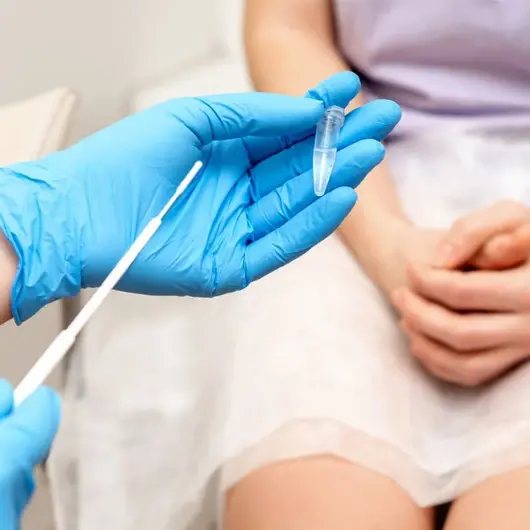
From the age of 20, women can have an annual examination of the external (labia and clitoris) and internal genital area (vagina). The gynaecologist also carries out a smear test (pap test) to check for cervical cancer and its precursors.
From the age of 35, a test for human papillomavirus (HPV) - the main cause of cervical cancer - is also offered every three years. The HPV vaccination for children and adolescents reduces the risk of cervical cancer. Nevertheless, an examination for early detection is also important for those who have been vaccinated. The vaccination protects against the most dangerous and most common HPV variants that can cause cervical cancer - but not against all of them.
In order to reach as many women as possible, the health insurance companies regularly provide information about the screening program for the early detection of cervical cancer. Therefore, every five years they send a letter with information to women between the ages of 20 and 65 who have statutory health insurance.
Skin cancer
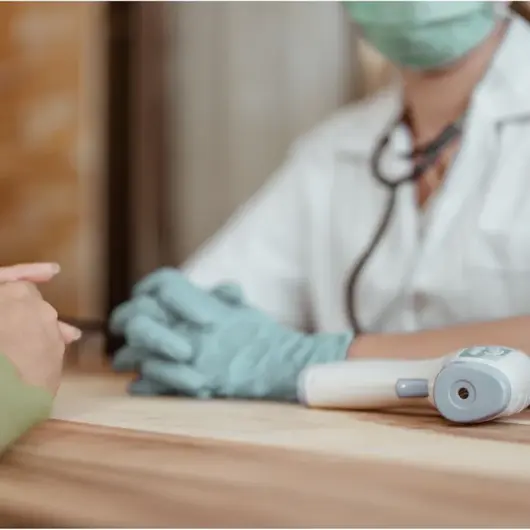
Statutory health insurance companies cover skin cancer screening every two years from the age of 35. The doctor uses a bright lamp to examine the entire surface of the body - including the scalp, lips and oral cavity - for any conspicuous changes. The examination is quick and completely painless. You can have skin cancer screening carried out by any dermatologist and by some general physicians with the appropriate additional qualifications.
Prostate cancer
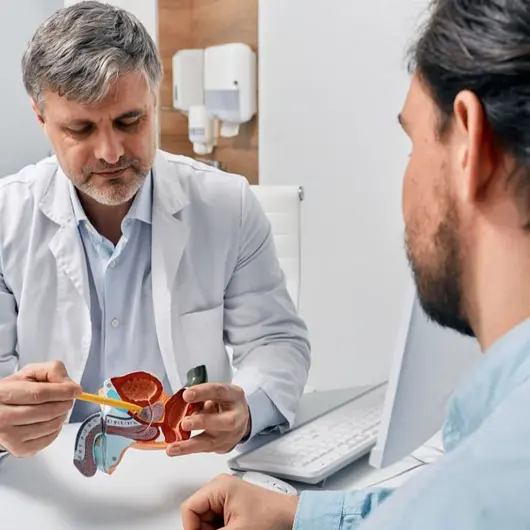
Men aged 45 and over can have an annual prostate examination via the rectum. The penis, testicles and surrounding lymph nodes are also examined.
However, studies by the DKFZ show that the significance of rectal palpation is limited. The data show that a palpation examination of the prostate alone is not sufficient to detect prostate cancer at an early stage in young men aged 45.
Know the benefits and risks of early detection
Early detection examinations - especially for the detection of colorectal cancer or cervical cancer - are a proven method of detecting tumors and even cancer precursors at an early stage. However, early detection also carries risks, such as overdiagnosis or incorrect results, which can lead to uncertainty or unnecessary treatment. This makes it all the more important to find out about the advantages and disadvantages of the examination and make an informed decision.
